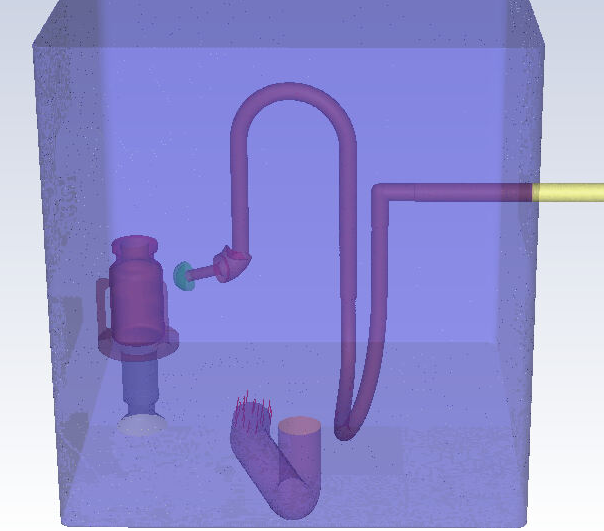-
-
July 23, 2024 at 2:12 pm
Rhandy Delefortrie
SubscriberDear all,
I asked this question a while ago, but couldn't follow up on it and I see now that my post is removed so I'm asking again.
I ran a transient simulation of a system which has a cooling gas flowing inside a chamber through an inlet and is directed at a glass vial that is spinning around. The cooling gas leaves again through an pressure-outlet positioned at the bottom of the chamber. I've added an image of the system. I would like to calculate the amount of cooling gas that enters the vial. How can I best do this? The purpose for this would be to compare the amount of cooling gas that enters the vial in different configurations of the geometry. The inside wall of the vial is defined and an interface surface at the top, used for the rotary domain. Maybe these can be used for the calculations. -
July 23, 2024 at 2:25 pm
Rob
Forum ModeratorGiven the forum downtime it's possible the thread was lost.
If you add the cooling gas as a different species (same properties as the bulk) you can monitor volume fraction inside the vial volume. You'd need a separate fluid region for this. Surface reports may not be overly useful as volume entering the vial will displace volume leaving although you could monitor +/- area or similar.
-
July 23, 2024 at 2:30 pm
Rhandy Delefortrie
SubscriberDear Rob,
I guess you mean doing some type of tracer experiment? I've thought about this as well and can set it up. However, I'm limited in HPC resources, so I'm trying to find a way to measure this without having to run additional simulations.
-
July 23, 2024 at 2:44 pm
Rob
Forum ModeratorIf you already have a steady result you can look at area on the top (lid) with +/- flow. You can also create an iso-clip surface to show the area in/out. That will give a flow rate, but may not tell you how much material enters.
-
- The topic ‘Mass flow inside a specific volume’ is closed to new replies.



-
3487
-
1057
-
1051
-
945
-
912

© 2025 Copyright ANSYS, Inc. All rights reserved.








